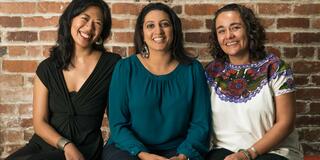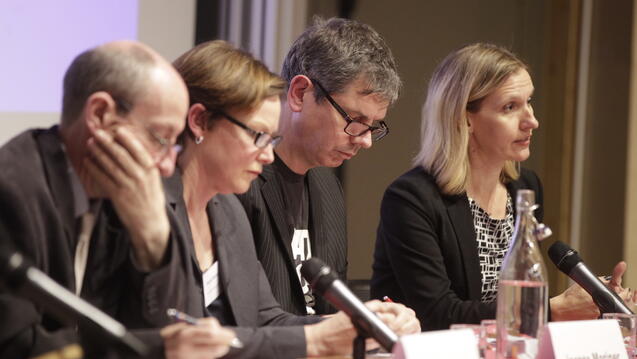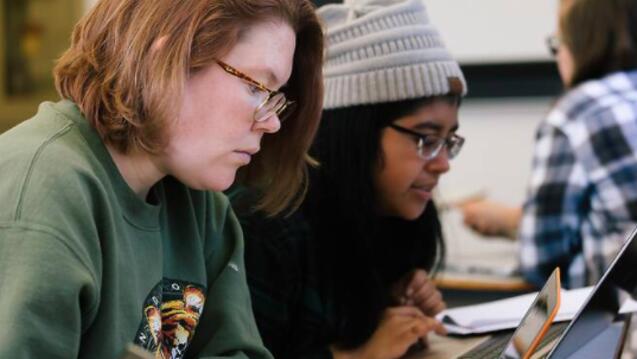Exploring Civic Identity, Engagement and Rights

Dr. Monisha Bajaj and her research team including students Amy Argenal and Melissa Canlas run a weekly human rights club for refugee and immigrant high school youth. Nearly 30 percent of the California population is foreign-born. Newcomer youth from various parts of the globe are increasingly entering public schools across the state and nation. Through the club activities and field trips, youth explore concepts of human rights locally and globally. This project aims to bridge the resources and expertise of the university with the needs, realities, and lived experience of communities.
This project explores and sheds light on how civic identity, engagement, and rights are understood by immigrant and refugee youth, many of whom faced severe hardships in their home countries, through the migration process, and sometimes in their communities here in the U.S. Their high school experiences do not necessarily mirror what educational literature discusses; this project seeks to amplify their voices and make visible their presence in educational scholarship. The project has been funded by a Jesuit Research Foundation grant as well as a Spencer Foundation Small Grant.
"The country that I come from has a civil war happening so I've always been really interested in human rights. But in my country, the government has all the control; we do not have freedom of speech or anything. We cannot share our opinions. When I came here, I really wanted to share, but I was limited in my English. I did not get the chance to share and discuss until I joined this Human Rights Club...Every week, every activity, every field trip, we learn something from that. Every little action was meaningful for us, and I learned that a lot of people are fighting for human rights. Also, I learned there are many kinds of human rights that we have to fight for. It is a great club, and I'm really happy to be in it." Seng, High School Senior, Refugee from Burma
"I was excited to work on this project because one of my primary commitments as an educator is to serve immigrant and refugee communities. Teaching human rights in an after-school, co-curricular space has given us the flexibility to develop genuine and meaningful relationships with students and to utilize a flexible curriculum that speaks directly to students' needs, experiences, and interests. Working with these students has been such a joy and such a powerful reminder of what is possible when individuals and communities work in solidarity with others for the fulfillment of their rights."
Melissa Canlas, Ed.D. Candidate in International and Multicultural Education, Human Rights Education Concentration
"Understanding and working on education for immigrant communities is important for me because of my immigration story. For youth to have an education that allows them to develop cultural pride and an awareness of their own history while at the same time providing a space to adapt and participate in their new homes is so important, and yet quite difficult. It is something that is often overlooked in many of our dialogues and debates on education. Being part of this project has been a place to explore these issues and also work with some amazing youth."
Amy Argenal, Ed.D. Candidate in International and Multicultural Education, Human Rights Education Concentration


